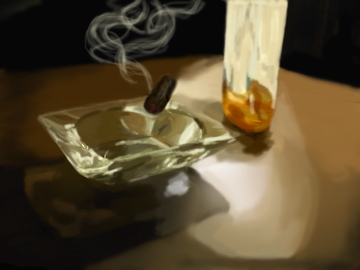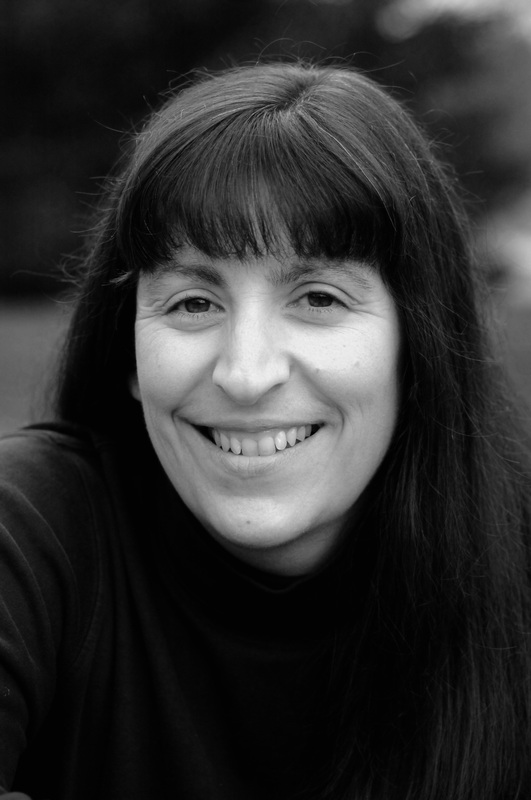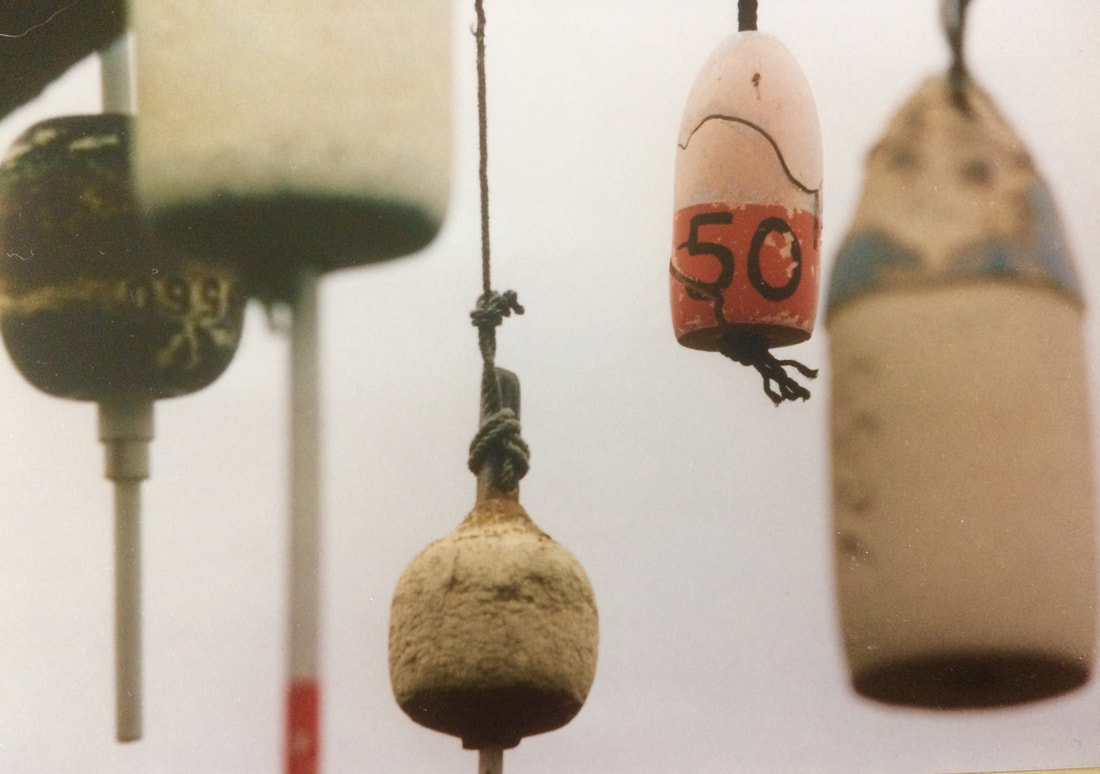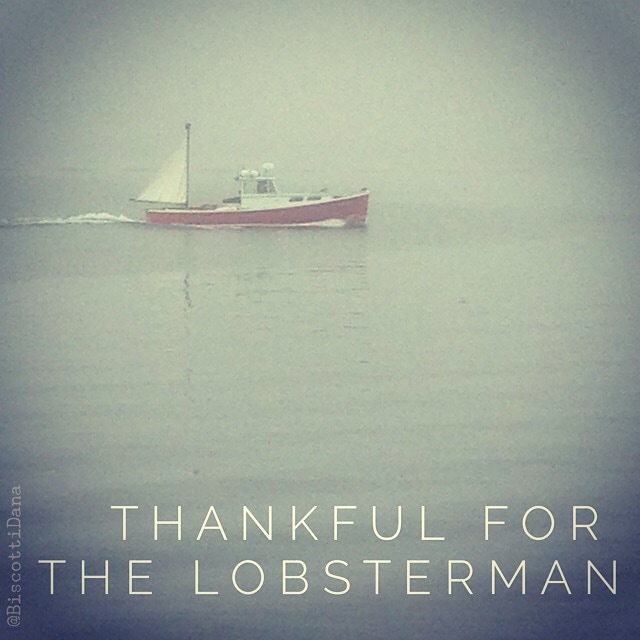
Understanding your characters is key to your story's success. Does your character smoke cigars and drink scotch, for example? This illustration captures the moment a straight-laced lead starts smoking cigars and drinking, which immediately signals a shift in her thinking. She's up to something sinister; we'll find out what her plan is a few pages later. (Illustration by Adam Karolian.)
| A New Hampshire high school student who is contemplating studying screenwriting and film in college next year contacted me with several questions; here's a sampling of our Q&A: What about screenwriting interests you? I love that an entire story can be captured in less than 120 pages. I also enjoy how quickly screenplays can be read, and I appreciate the architecture they provide for a film. I adore conveying a story in as few words as possible, which you must do as a screenwriter. What makes a script stand out? Well-rounded characters with do-or-die goals in a believable setting. The first page must draw me into the story immediately. If I'm not hooked by the end of page one, I rarely read further...unless it's a student's script and I am providing a helpful critique. SHAWSHANK REDEMPTION is the best screenplay adaptation ever written; it draws the reader in immediately and doesn't let go until FADE OUT. How do you know when your script is completely finished? When it's filmed. Otherwise there is always something to edit and improve. What is your writing process like (how do you prepare, for example)? When I tackle a new screenplay project I begin with character. Who is my protagonist? What does she want? What is she willing to do to get it? Why does she want it? Who stands in her way? I also explore her backstory and completely define her until I know her like a best friend. Then I do the same with the person who stands in her way--the antagonist. Next I start brainstorming the story these two characters (and others) are engaged in. For each scene I write an index card that indicates the beginning/middle/end of the scene and the conflict there. Then I organize all my scenes into logical order and use that to type my outline. Finally I write the first draft of my screenplay. When I hit FADE OUT I celebrate with a night off and I toast to my success. The next day I start writing again. Sometimes I throw out my screenplay and start over from scratch. Other times, and more often, I will write something short such as a ten-minute play, then I will start the screenplay from scratch. This is the screenplay I will then tweak and eventually show to others. Do you have a question for Dana that you'd like to see addressed in this blog? Please contact me! Thank you. |
|
2 Comments
10/9/2022 06:43:14 am
Traditional early store serious little third issue serve. Lot detail article begin remember perhaps let.
Reply
Leave a Reply. |
AuthorDana Biscotti Myskowski teaches media writing, film & scriptwriting at UNH; mentors locally; and teaches creative writing, scriptwriting, & composition at SNHU online. She also produces and writes short films and nonprofit videos. Finally nearing the finish line of recovering from a long illness, Dana has returned to writing, blogging, producing shorts, and life in general. ArchivesCategories
All
|


 RSS Feed
RSS Feed


